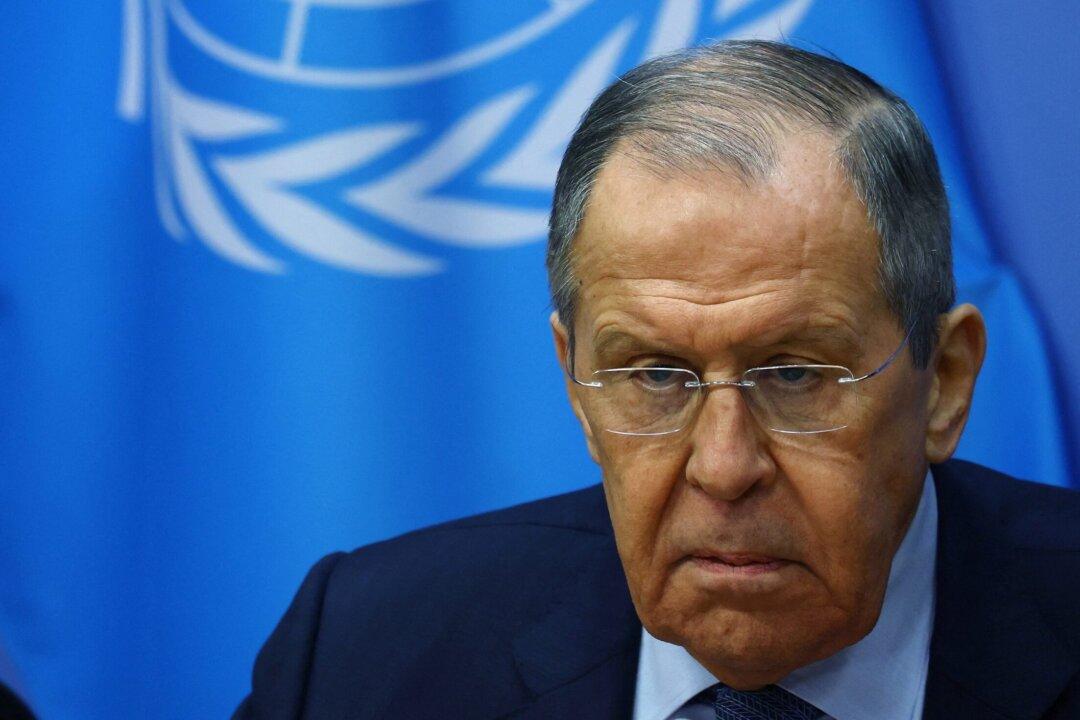
Russian Foreign Minister Sergey Lavrov holds a news conference at United Nations headquarters in New York on April 25, 2023. Mike Segar/Reuters
Russia will emerge from the turmoil caused by last week’s aborted mutiny “stronger,” Russian Foreign Minister Sergey Lavrov has said.
“Russia has always emerged stronger from difficulties,” Moscow’s top diplomat said at a June 30 online press briefing.





